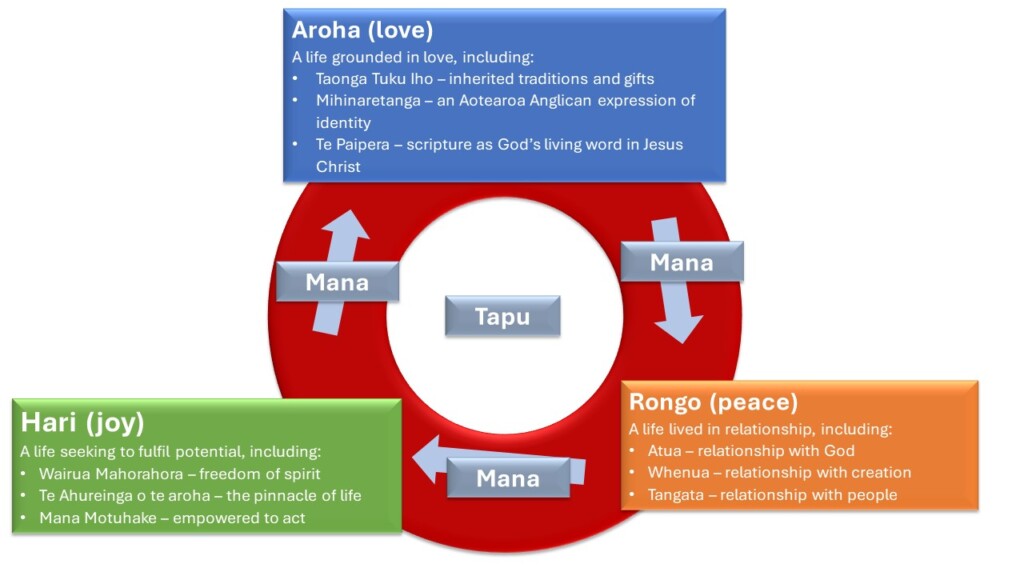Te Oranga Ake
Te Oranga Ake
I haramai ahau kia whiwhi ai rātau ki te ora, inā, tōna nui noa atu John 10.10b
Ehara hoki te rangatiratanga o te Atua i te kai, i te inu; engari he tika, he rangimārie, he hari i roto i te Wairua Tapu Romans 14:17
“Te Oranga Ake o te Iwi, o Te Ao” or “human flourishing, the flourishing of all creation” means the good towards which humans are meant to strive: a world in which everyone can take hold of a life worthy of Te Āhua Ake o Te Tangata (our humanity).
To achieve Te Oranga Ake o Te Iwi, or Te Ao, we must help whānau, hapū, and iwi envision and pursue lives worthy of Te Āhua Ake o Te Tangata. We do this through discerning, articulating, and commending visions of Te Oranga Ake in light of the oranga and teaching of Te Karaiti.
In the Paipera, Te Oranga Ake o te Iwi, o Te Ao is described as Te Rangatiratanga o te Atua (the Kingdom of God). Wherever Te Karaiti is asked about Te Oranga Ake o te Iwi, o Te Ao he proclaims and demonstrates Te Rangatiratanga o te Atua; that flourishing requires the world embodies the goodness that is a gift of God, marked by peace in our relationship with God, our neighbours and creation – the grounds of true joy.
In Romans 14, Te Rangatiratanga o Te Atua is described as “righteousness, peace, and joy in the Holy Spirit. For the Āpōtoro Paora, righteousness in the Paipera is ‘covenant faithfulness’. This speaks of the fidelity of Atua to iwi, and iwi to Atua but the content of the covenant is obedience to Te Ture o te Aroha / the Law of Love.
These three dimensions of Te Rangatiratanga o te Atua are also the three dimensions of Te Oranga Ake o te Iwi, o Te Ao: Aroha, Rongo, and Hari.
As with all believers we understand Te Oranga Ake within our cultural framework, one in which the the Gospel is shared through our mātauranga Mihinare (indigenous Anglican worldview). In this, we understand the centrality of Te Tapu o Te Tangata as our innate connection to God’s creation. This in turn is expressed as mana, the acknowledgment, maintenance and where required – especially by the ongoing processes of colonization – restoration of tapu.
This is an ongoing project which finds expression in everything from schools to social services to mātauranga-a-iwi to mission. We will continue to develop this over time. Below is one expression of this theology:
